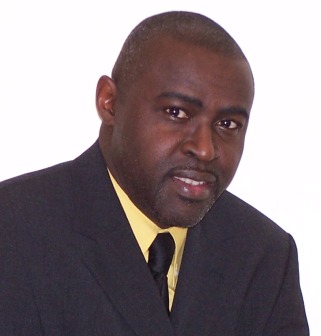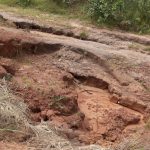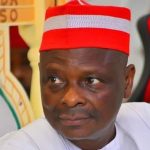The Joy of True Democracy: The UK Parliamentary Elections 2017
Articles/Opinion, Featured Contributors/Columnists, Latest Headlines Friday, June 9th, 2017
By Akintokunbo A Adejumo, akinadejum@aol.com
(AFRICAN EXAMINER) – This article is not meant or written to disparage or ridicule the system of governance, politics and democracy in our country (although if I were to do that, I will be within my rights as a very concerned Nigerian) that we have turned on their heads, aberrated, mangled, brutalised and bastardised solely for selfish, ethnic and religious reasons and interests.
Rather it is an attempt at education; attempt at redemption; attempt at deep reflection; attempt at releasing my own deep frustration, yet with the hope and conviction that we are passing through a phase that all true democracies and governments and societies have passed through, learning, improvising, adopting, adapting and improving all the way to become what they are, but only due to commitment, willingness, selflessness, unity and cooperation of all peoples concerned.
My concern is not that Nigeria will not be a great country (it does not have to be the greatest country); my concern is that it will not be in my time, and even in the time of our children.
My first taste of any politics was at the University of Ibadan, when in 1976, I was elected the Commissioner for Health at Independence Hall of Residence. In this small, virtually unrecognised election, I went through nearly three months of campaign, culminating in a Speech Night at the cafeteria. My opponent and I gave speeches; other candidates for other positions also did, and it all went well. No hecklers, no thuggery, no bitterness, no mudslinging, etc. It was a night of convincing the electorates of Independence Hall who they should vote for. I won the election that took place the following day. My opponent, an Igbo guy, and older than me in age and in class, became very good friends with me, and in fact, I appointed him as a member of the Health Committee. And never did he slur me during my one-year term. That was students’ politics in Nigeria of those days. No gratification from anybody; no sponsor; my friends helped me raise money to print my electioneering posters and leaflets. That was it.
Then Youth Service came and I was the Social Secretary of the one-month Orientation camp in the state.
I was elected the President of the International Students Organisation of the University of Manitoba, Winnipeg, Province of Manitoba, Canada in 1983. The incumbent, an Iraqi Ph D student and the Director of International Students, a Professor and the entire African Students Organisation, led by a Nigerian, the then Miss Morayo Grillo (now Mrs Anthonio), of the university encouraged me to run against a Chinese student, because there had never been an African student leading the organisation, which was umbrella group to all foreign students in the university. I accepted to run, and I was duly elected, thanks to a concerted and positive campaign and support from these people, and this was barely after one year of entering the university to do my Master’s program. During my one year term, I was so much involved in students, and even provincial and national politics that it affected my studies, and resulted in me spending three years for my Masters rather that the eighteen months I was supposed to do. But it was all for a good cause and good personal experience, and I have no regrets. I travelled all over Canada for conferences, meetings, seminars, etc. I met great Canadian politicians including the late 15th Prime Minister of Canada, Mr Pierre Trudeau, the father of the present and 23rd Prime Minister, Justin Trudeau . I was introduced to PM Trudeau as the President of the ISO, Canada, which was not even in existence then, and perhaps even now, in 1984. I was also invited to wine and cheese parties and dinners by the then Minister of Employment and Immigration, the Hon Lloyd Axworthy (MP for Winnipeg), the then New Democratic Party Premier of Manitoba, late Howard Pawley (died 2015) and the then Mayor of Winnipeg, William Norrie, Q. C.
A useful digression. When Mr Trudeau was PM of Canada, (the time I was there, at least) his party, Liberal Party, was not ruling any of the 12 Provinces and Territories of Canada, yet it was ruling nationally. How can a party which could not win in any of its provinces now win nationally? Such is the advanced state of democracy in these climes. And this was a time when the separatist Parti Quebecois of the French-populated and dominated province of Quebec were agitating for separation from Canada, and Mr Trudeau himself was a French Quebecois/Canadian. Yet he resisted with very heavy handedness, the attempt to break Canada by his kinsmen. In fact, a few terrorist incidents were ruthlessly quelled by his government.
Which now brings me to the United Kingdom. If this is not a perfect democracy, at least it is near perfect. It is what any aspiring democracy should copy and emulate. I love it for its openness, tenacity, commitment to the people, the sincerity of its politicians, the selfless service expected of and obtained from the politicians, the freedom, the peacefulness, the transparency, the dividends the people get, the assurance of progress and continuity and expectations of the people from their political leaders, the TRUE GOVERNMENT OF THE PEOPLE, BY THE PEOPLE FOR THE PEOPLE.
But what really is the DIVIDEND of Democracy that we love to shout and demand from our rulers? Today, if a Governor or president construct, dualise or rehabilitate a road, they will tell us these are dividends of democracy. What then do we call the military governments that constructed much of the roads in Nigeria. When new universities were approved during the tenure of Mr Jonathan, we call it dividend of democracy, but most of the universities in Nigeria were provided by the military. The Nigerian military governments provided the bulk of the electricity we use today; they built the refineries, the airports and much more things than the democratic governments are providing, should we call it the dividend of militarism?
Kingsley Ohajunwa, wrote two years ago “Let’s start by understanding that governance at any level and in any society, is geared towards providing quality service to people. Democratic governance follows this pattern but goes a step further towards not just providing such services but also ensuring that the people get carried along in this process of service delivery; this is indeed the very essence of democracy. Some may understand “dividends of democracy” as meaning good roads, provision of portable water supply, making education accessible and affordable, constant power supply, accessible medical care, provision of jobs, good transport system, affordable housing, favourable economy for trade and investment, affordable food supply amongst others. However, while all of these may be accepted as what these political office holders should do, the focus is to ensure that they are effectuated by involving the people.
The entire idea of “dividends of democracy” will be useless if it is concerned only with the provision of all the structures listed above. The crux is to have a people-involved process. So, it seems funny when political office holders construe “dividends of democracy” as what they are able to provide and even more worrisome when the governed see it as physical structures built by their representatives in government”.
So, what is the true meaning of the dividend of democracy? To me, it’s simple. A true government of the people; a situation where the people’s voice is the government decision; freedom of speech, association and movement; peaceful co-existence; justice, equity and equality; sincere and selfless governance; no marginalisation of any person due to tribe or religion; good governance, Are we free to speak without arrest? Are we free to move without prevention? Are we free to associate peacefully?
“Dividends of democracy” should be the people’s absolute involvement in running the affairs that concern them, and therefore, we should see the expression as meaning something else but not just the physical manifestations provided.
In the context above, we will see that these are exactly what Nigerians do not get in their practice of democracy. Not even the physical structures. Nigerians are NOT involved in the processes of governance, only the greedy, selfish, and corrupt politicians, civil servants and business leaders are. Simple!!!!!
I started voting in the UK elections as far back as 1991. In 1991, I was a Census Enumerator for the nationwide UK Census, conducted every 10 years; in 2001, I was a Census District Manager and in 2011, was again a Census District Manager. These were part-time jobs that lasted over 6 months. I still had my full-time jobs, these were only to supplement my income. I will not even try to make comparisons with how we hold population census in Nigeria; there simply isn’t ant grounds to compare.
Today, 8th June 2017, is a great and joyful day for 1000 years of British Democracy. It always gives me great pleasure and assurance to vote (and sometimes participate as an official) in any UK elections, be it a Referendum, local government, or general/parliamentary elections. It is a joy to see democracy in action and to know that it is not only determined by ALL Britons (and Commonwealth citizens living and registered to vote in the UK) but it also benefits them and pave ways for better and better lives, society, environment, economically, technologically, and culturally. It is a true tested and proven system, and I do not see any other system replacing this system. Of course, Democracy is not just about elections. It is about the action; it is about good governance; it is about service by the elected and being served from the electors. The electors DO NOT serve the elected; the elected SERVE the electors. It is about humility and acceptance of defeat gracefully;
Former Chinese Premier Cho En Lai, when asked in the 1960s what he thought about the French Revolution of 1789, said that it was too early to tell. Nigerian democracy and the independence, military schisms, turbulences, and civil unrests and war that spawned it is still in its early stages. The challenge for the West will be to find a way to nurture democracy without giving the impression that it harbours neo-colonial ambitions. Nigerians are ever sensitive to the still recent experience of British rule, military rule and civilian ineptitude.
At the same time, it frustrates me, angers me and saddens me to know that we are nowhere near this almost perfect system in Nigeria. Some reading this will tell you “Oh, the British and Americans have been at it for centuries, so we cannot compare them to Nigeria which has only been off and on democracy just over 50 years ago; our democracy is still in its infancey”.
But I counter this by saying, “We cannot re-invent the wheel; we have examples and precedents in Britain, America, and the rest to follow, we cannot start from the scratch; in fact, we cannot afford to start from the scratch, otherwise we are setting ourselves back for over 10 centuries and the world will just leave us behind, if it is not already. Why don’t we adapt Western brand of democracy with all altruism to our culture, environment, and traditions, and adopt democracy if we want it, or discard it in totality if we don’t?”
I do not have to describe again what happens on Election Days in the UK, not the mode of political campaign which is filled with maturity, sensitivity, sincerity, and peacefulness. I do not need to describe the deep commitment and involvement placed on political and electoral activities by the politicians seeking offices, their campaign officials, the people they are asking to vote for them, and the officials conducting the elections making sure there is no rigging and everything runs smoothly not only to ensure that the right people are elected into office, but that money is well spent, and no politician gets campaign money illegally, from dubious sources or use public money and spends more than is stipulated by law. It is a joy to see and participate in such a system, I say.
For the moment, I am simply going to savour the moment and humbly express my joy at watching millions of Britons execute and celebrate their democratic right at the ballot box. It is the joy of democracy.
For Nigerians, it is up to us; whether we remain as one indivisible unit; or as separate units infused into one country (regionalism) or we break apart into small units. For now, it is one country seemingly bent on self-destruction and immolation that do not seem to know the meaning of Unity in Diversity.
Related Posts
Short URL: https://www.africanexaminer.com/?p=39625






















